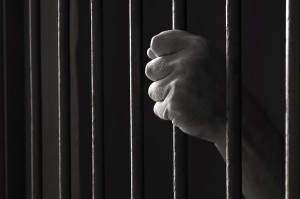 If one party is in prison during the divorce process, custody issues can still be finalized. Many parts of the divorce process are unchanged when one of the spouses is incarcerated, however, there are many special issues and questions that come up when one spouse is in prison.
If one party is in prison during the divorce process, custody issues can still be finalized. Many parts of the divorce process are unchanged when one of the spouses is incarcerated, however, there are many special issues and questions that come up when one spouse is in prison.
A person in prison does not have an absolute right to attend a divorce proceeding. However, according to the California Penal Code Section 2625, a prisoner does have the right to attend any court proceeding which could possibly terminate the prisoner’s parental rights, or that would make the prisoner’s child a dependent of the court. Because a divorce proceeding does not cover either of those issues, a prisoner will not have the absolute right to be present at a hearing.
However, even though the prisoner does not have thee absolute right to attend a divorce proceeding, the court may still order the prisoner to be present, because the hearing is an action in which their marital or parental rights will be determined. The court may not do this on their own; if a person is in prison and wants to be present at a divorce hearing, they should request to do so as soon as possible. This is especially important if the incarcerated party has children and is concerned about custody and visitation rights.
It is common for the courts to award sole custody to the non-incarcerated parent. This is because the courts determine custody according to the best interests of the child. If an incarcerated person wants to have any custody of their children, they would have to show the court compelling evidence as to why that is in the best interests of the child.
An incarcerated person cannot get physical custody, unless they are in a mother-infant facility. The court might grant the incarcerated parent joint legal custody, usually if the other spouse agrees to it. An incarcerated person can get custody upon release; to do this they would have to file for a modification of child custody orders. To get a modification of child custody orders, the parent would have to show significant change, besides getting released from jail.
Usually, a person getting released from prison who wants physical custody would have to show they have a job, and adequate housing. For legal custody, the parent would have to show they made reasonable effort to keep in contact with the children while in prison.
As for child support payments, the court will often not require an incarcerated parent to make support payments while they are in jail. This is because they usually do not have an income or income-producing assets with which to make support payments. However if the incarcerated parent does have assets or income, they might be ordered to make payments. If the incarcerated parent is not ordered to pay child support, any child support they owe will be subject to interest charges.




